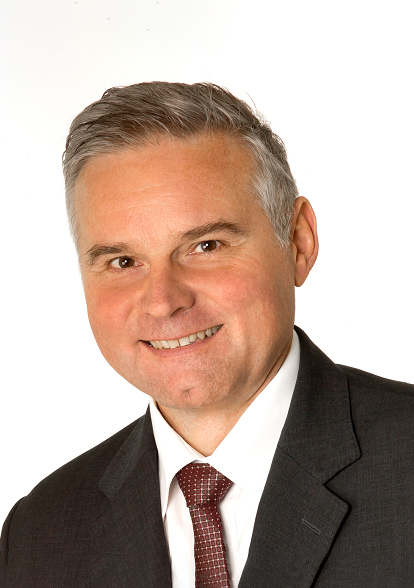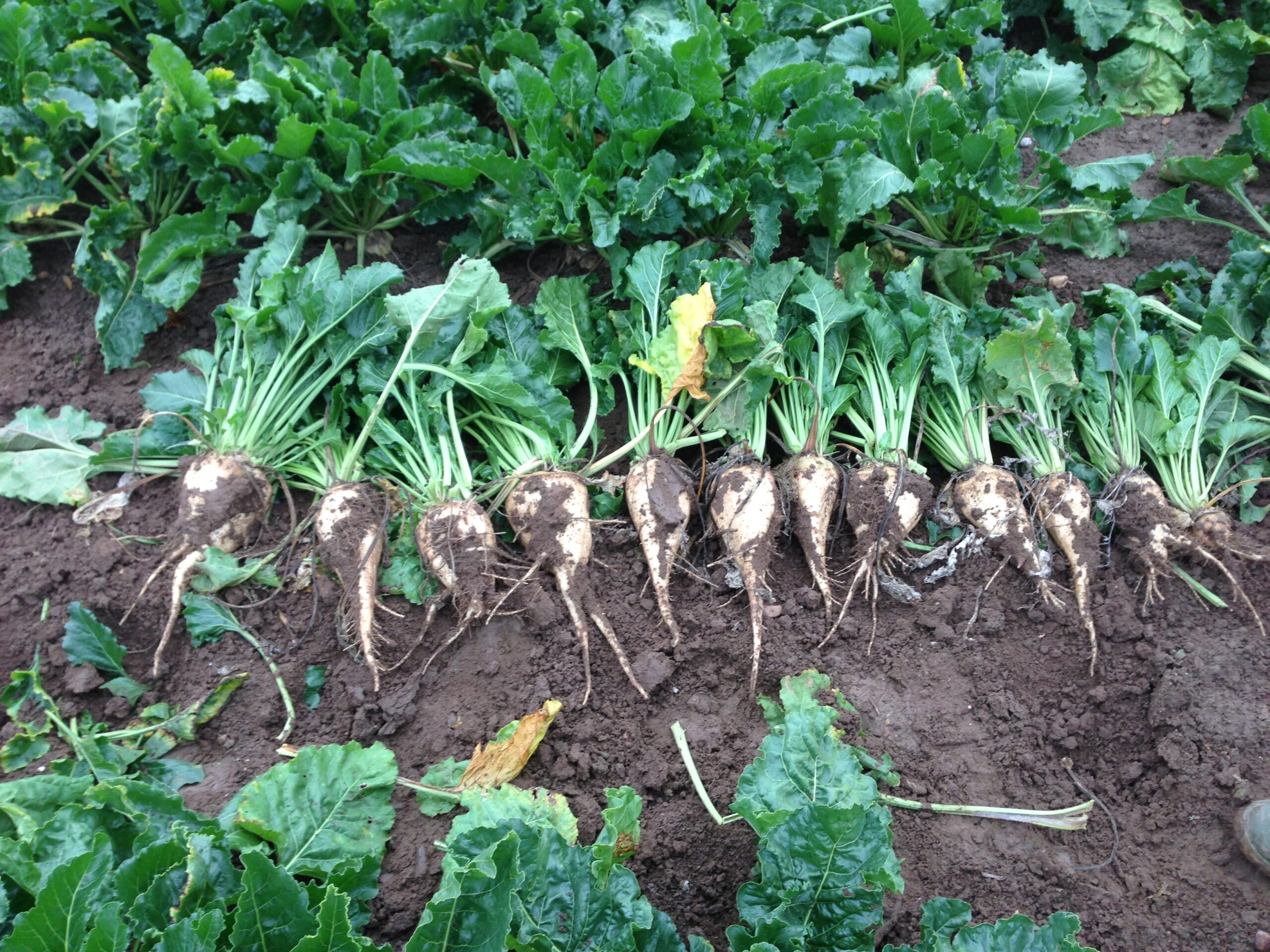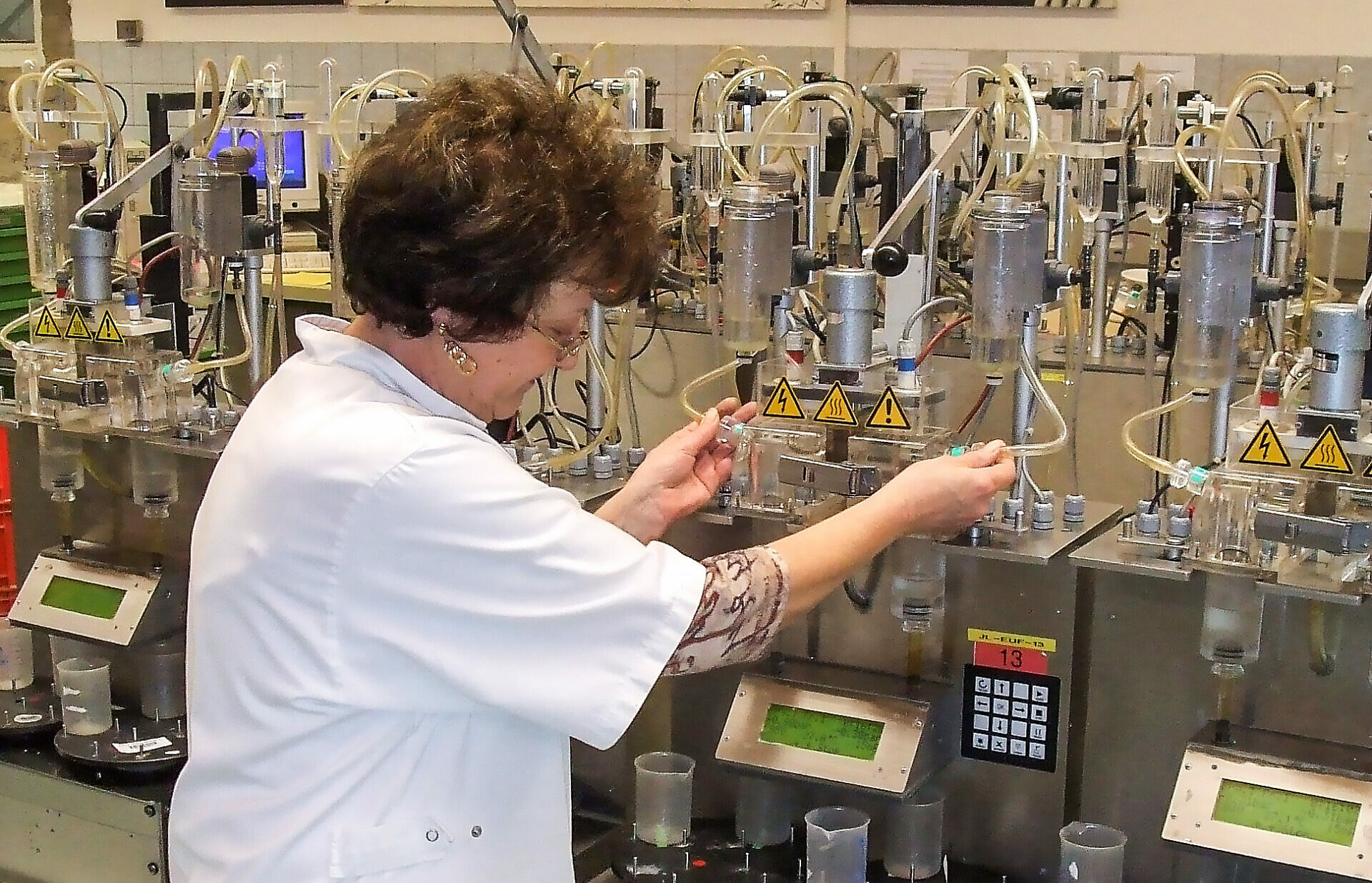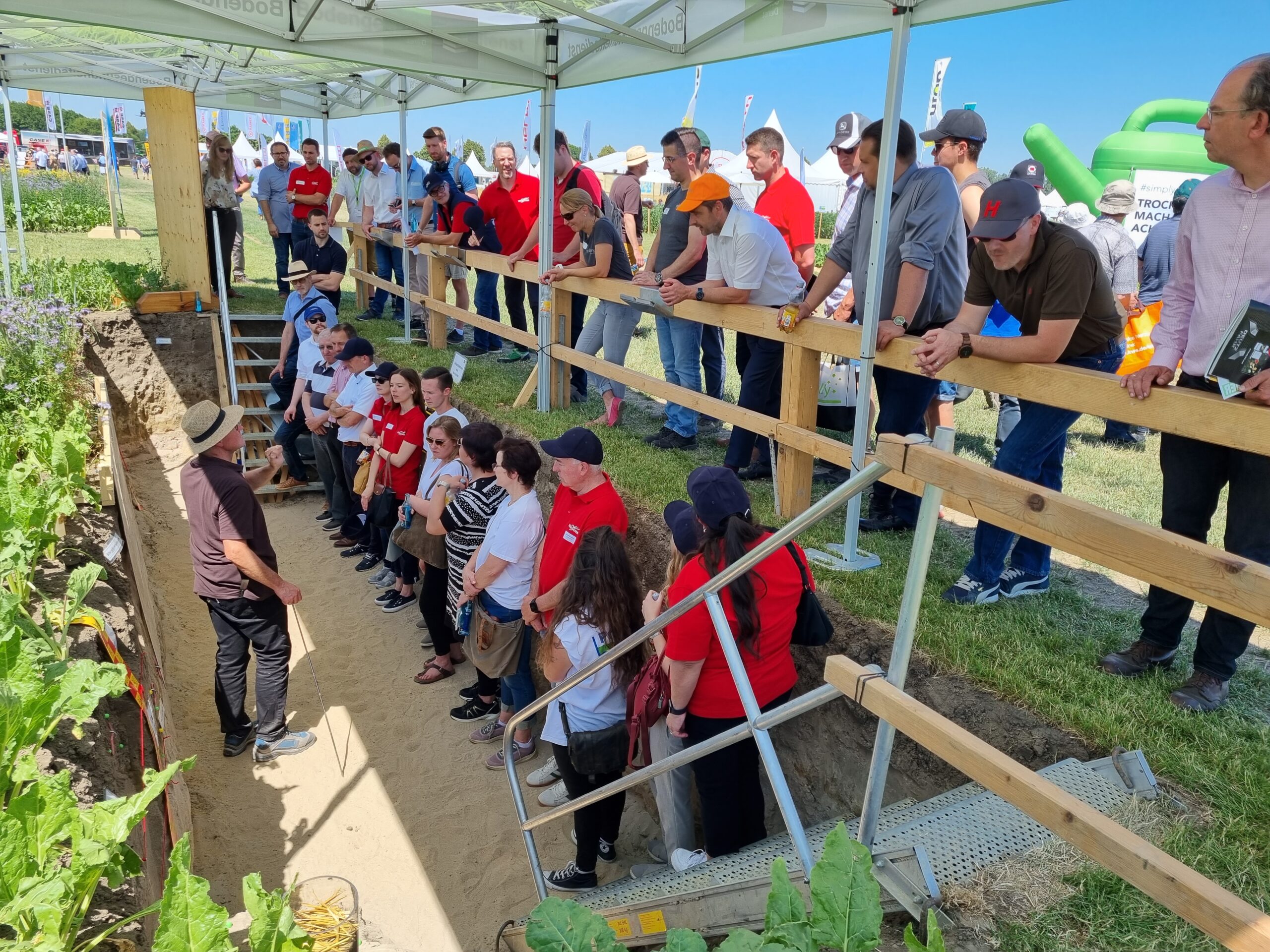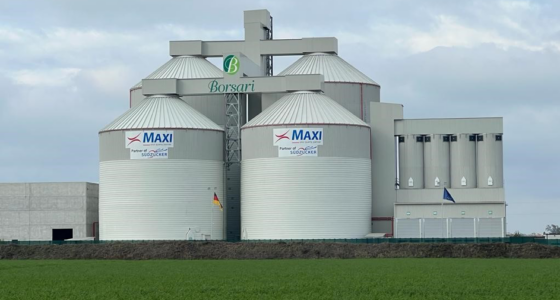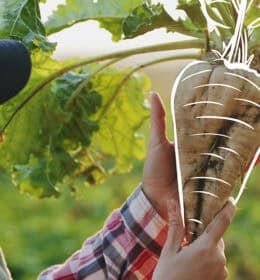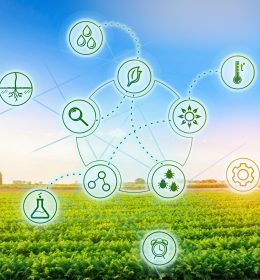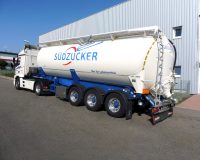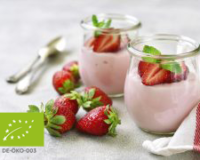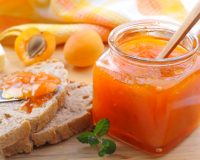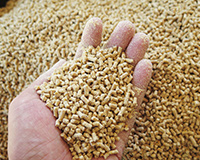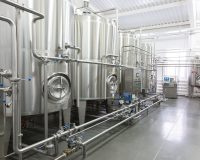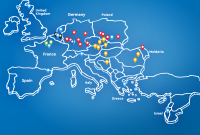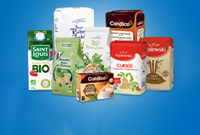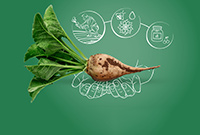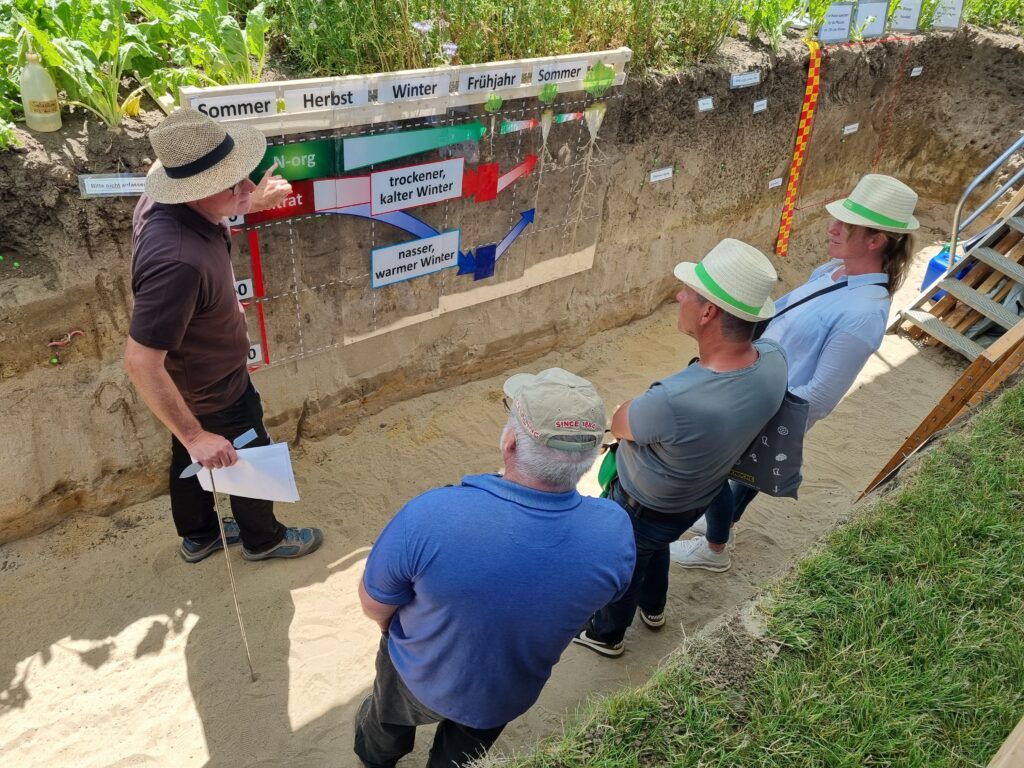
Südzucker´s Soil Health Service – Get to Know Your Soil and Reduce Fertilizer in an Effective Way
As a leading company in the food industry that processes over 30 million tons of renewable agricultural raw materials annually, Südzucker Group strives to contribute to healthy soils and a sustainable future. To do so, we work closely with our farmers and support them with individual advisory services.
Our subsidiary, the soil health service BGD (short for Bodengesundheitsdienst GmbH in German), plays a vital role in this effort. Based in Ochsenfurt, BGD offers laboratory tests, including soil analyses and fertilizer advice, for the entire spectrum of agriculture and private households throughout Europe. We always complement our services comprehensive advisory services, making BGD an essential partner for agricultural enterprises, agricultural trade, advisors, and state institutions.
In an interview, BGD’s Managing Director, Dr. Gebhard Müller, provides information about the tasks, goals, and challenges that influence the work of the BGD.
The company developed out of Südzucker AG but is an independent limited liability company that has grown far beyond the boundaries of beet cultivation and now serves agricultural businesses and service partners throughout Europe.
The market for soil analysis is highly competitive, and we occupy a niche with our Electro-Ultrafiltration analysis method (EUF). EUF soil analysis put us on the map, but we have since evolved into an advisor on agricultural soils, farm fertilizers, and animal feed. BDG also performs analyses for the trade and is recognized for its expertise in planting material, where our expanding range of services includes PCR analyses, e.g., for hop viruses, as well as the examination of antibodies for viruses in grapevine plants.
We work for a wide range of businesses and institutions: agricultural enterprises, farmer producer groups, agricultural traders, state institutions, and even private households – we support them all. In agriculture, our services are aimed at farmers with and without sugar beet cultivation and others. Winegrowers, fruit growers, berry producers, Christmas tree farms, hop growers, biogas plant operators, and many others rely on advisory services from BGD. We’re easy to reach and welcome all inquiries via our website and will take care to provide an individual contact person for each customer. We’ll reply to questions promptly, and our advice is always free of charge. Service is key – every customer counts, regardless of whether they order one examination or several.
Südzucker’s successful sustainability work with beet growers began more than four decades ago and has been driven by our colleagues’ powerful performance ever since. BDG was founded in 1986 with the goal of reducing beet field fertilisation to a level that would ensure higher beet quality and, thus, a higher sugar yield.
At that time, manure was still applied via humus management, then aided by increasing fertilisation with mineral fertilisers, resulting in a 2 to 3 times higher fertilisation level compared to today.
All plants store substances to survive, as do beets. However, some of these substances bind sugar in the cells in such a way that it can no longer be completely dissolved and then remains in the molasses. The so-called molasses formers consist of potassium, sodium, and nitrogen nutrients. But patchy or diseased beet stands are also causes of this phenomenon.
Those responsible at that time had long been aware of the causes. The aim was to create uniform, healthy beet stands, significantly reduce sugar beet fertilisation, and do it in a way adapted to each beet field. For well over ten years, the standard methods for determining plant nutrients in the soil were tested in the laboratory and the field for their practical suitability in beet cultivation. Finally, a suitable method was found: Electro-Ultrafiltration (EUF).
The Electro-Ultrafiltration method had just been developed in science and was then used by the Austrian sugar industry for the first time in practical fertiliser consulting. Südzucker set up this analysis method in the Justus Liebig laboratory at the Rain factory site, combined it with comprehensive fertiliser consulting, and continuously developed it further.
BGD’s EUF service consists of two parts: the EUF soil analysis and the EUF fertiliser advice.
The EUF method is a high-tech analysis procedure. With EUF, the plant nutrients are physically extracted from an aqueous soil solution under variable current flow and temperature control – similar to a battery.
EUF can very closely simulate actual nutrient conditions in the soil. That allows us to accurately determine how many nutrients are available to plants in the short term and how many nutrients will be available throughout vegetation. The method has been accompanied by field trials in the field from the beginning, and from this, fertiliser advice has been developed for each agricultural crop.
Our EUF fertiliser advice takes a holistic view of the soil. All nutrients – all important for the plant – are determined. We also take the soil type into account. Very importantly, we determine the exact calcium content, i.e., the lime content in the soil. Farmers, therefore, receive important recommendations for maintaining a good soil structure for absorbing and storing precipitation water and rooting, ultimately securing high yields and qualities.
Farmers get all this information from a single soil sample. Our EUF customers appreciate the high practicality of EUF fertiliser advice. With EUF, farmers fulfil all fertiliser regulations. The crucial factor, however, is that they will have already made all the preparations and decisions for their fertilisation long before planting a crop. Thus, beet growers now sow their beet in spring, but they will already have had their EUF recommendation in place in summer. Only EUF can do that!
We provide fertiliser recommendations for all field crops, vines, fruit, and berry plants, for many other speciality crops, grassland, golf lawns and home gardens. You can also have your garden soil tested by us.
“Holistic” – that almost sounds a bit anthroposophical!
Yes, you might think that. But no – every soil has to be understood in a system context, an interplay of biology, chemistry and physics. A handful of soil can contain more life than there are people on earth. The human brain wants to summarise and simplify complex interrelationships; fertiliser marketing thrives on simple, easy-to-understand statements. Plant nutrition and, therefore, water, nutrients, aeration etc., must always be seen in context. That is nothing new. Our ancestors knew this from practical experience, and the old teachers Liebig and Sprengel already defined this as a law about 200 years ago.
- All important fertiliser information is available long before the start of crop cultivation
- High flexibility and scope for decision-making when buying fertiliser and applying it
- Simple sampling, options for mechanical sampling
- Fast test results
- Always a competent contact person who is also well versed in legal issues (these can vary tremendously depending on the federal state, strong price-performance ratio)
We deal with many market segments and seasonal investigation periods throughout the year. Coping with peak work periods under Covid was tough. We’re constantly balancing our market development activities with our efforts to provide fast and reliable solutions to our customers promptly. Of course, we also want to further develop the EUF fertiliser advisory service, both in terms of scope and marketing, which requires cost-intensive upgrades to our IT environment.
In recent years, the biggest challenge has been the implementation of the new fertiliser ordinance and the state fertiliser ordinances. In the process, individual authorities unfairly called the EUF method into question. Our approach differs from the state standard testing methods and what the doctrine teaches. However, we’re proud that the fertiliser ordinance fully recognises us. Fertiliser consulting is a sovereign task and in private hands at the same time; the consulting market is highly competitive.
Our primary goal is to develop our existing partnerships further and acquire new partners to focus our advisory services even more intensely on the respective regions. We also want to expand the business area of greenhouse gas balancing. We will take up the challenges posed by increasingly extreme weather conditions and transfer solution approaches via advisory services. That can only happen in close cooperation with all partners, i.e., agricultural trade, advisory services and, of course, with the practitioners in the field.
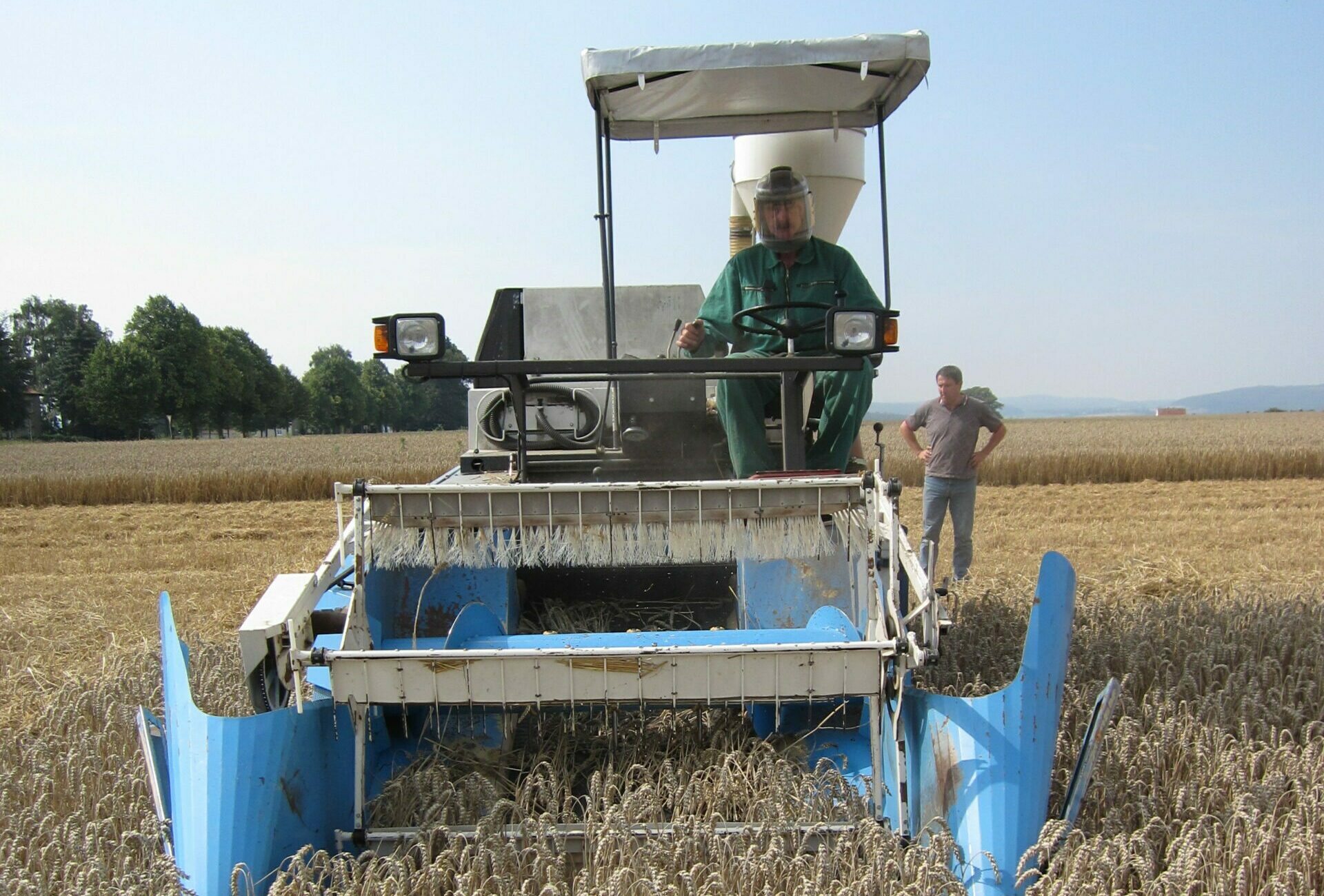

Good question. We want to provide farmers with solutions in cooperation with competent partners, e.g. from the agricultural trade.
In the future, a typical question will be: How can I secure my yields with regulated fertilisation and under increasing drought conditions? That’s where the interaction of plant nutrients and soil factors comes into play.
The enormous impact the many hot days with temperatures above 40°C have on the soil has not yet been registered at the practical level. We reach up to 60 °C in the upper centimetres of soil. These are conditions like in sub-Saharan Africa. At BGD, we’re already addressing this in the advice we provide. We need resilient soil structures to counter the heat and erosion caused by heavy rain and wind. While we cannot solve these problems, we do point them out and propose ways in which soil problems can be remedied. Because soil, once destroyed, cannot be replaced, soil is a scarce factor.
Thank you very much, Dr. Müller, for your time and the interesting exchange.
If you would like to learn more about the soil health services of BDG, please visit our new website

